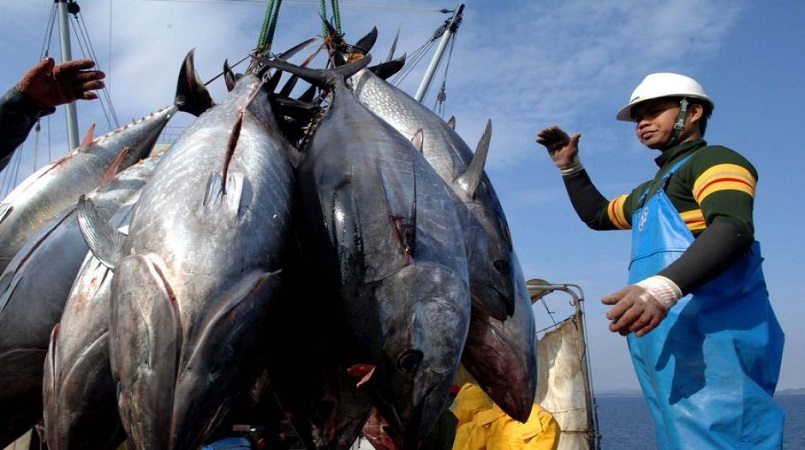
New Zealand says the unravelling of the US Tuna Treaty is a wakeup call for Pacific countries that have become increasingly reliant on the tuna income from the highly successful, PNA vessel day scheme.
The idea behind the vessel day scheme is that by putting a cap on the total number of fishing days available in PNA waters, demand from fishing vessels would bid up the price of each day.
In the past four years returns from the vessel day scheme have quadrupled but now the US fleet says it has to return days already sold under the US Tuna Treaty because it can’t afford to fish.
In the last 18 months catches have hit new records but with so many fish being taken prices have dropped dramatically.
“The lesson coming out of the unravelling of the US tuna Treaty shows that Pacific countries cannot rely on continually increasing the cost of days as a primary source of income if the cost of the day is disconnected from the market reality,” Shane Jones New Zealand Ambassador for Economic Development said.
Jones says the move to catch-based quota management endorsed by Pacific leaders in their new Fisheries Roadmap, will help resolve the crisis.
At the heart of the roadmap is sustainability he said.
“The scientists in Noumea are continually telling us that the growth in catch is not biologically sustainable.
Jones is concerned that in the immediate race for revenue, sustainability is getting lost, industry is being pressed too hard and government budgets risk being destabilised.
Unless industry is profitable it is impossible to see where jobs and revenue can come from in the future he said.
Jones is also apprehensive that any sudden or abrupt change in VDS price will have a negative impact on Pacific Island government budgeting
